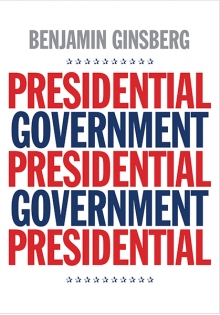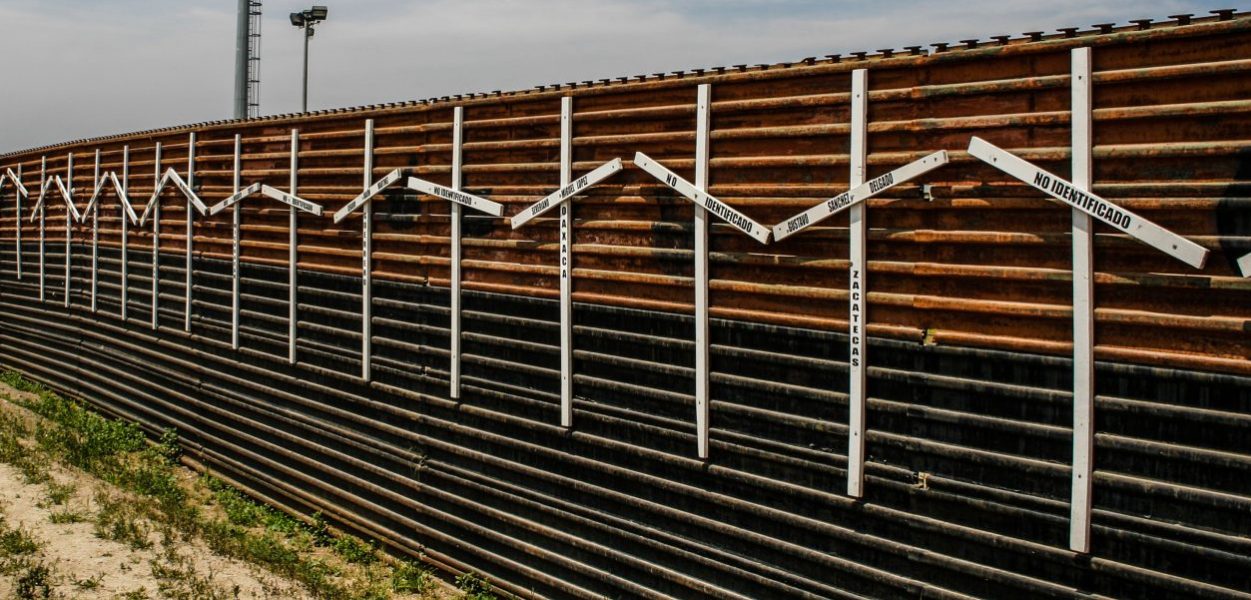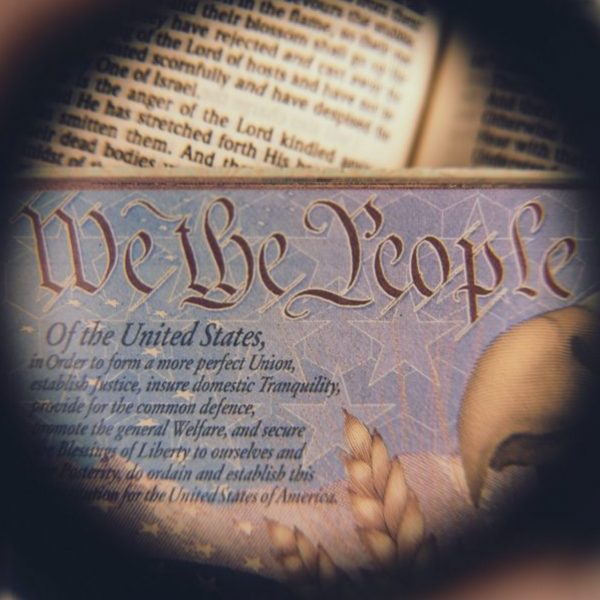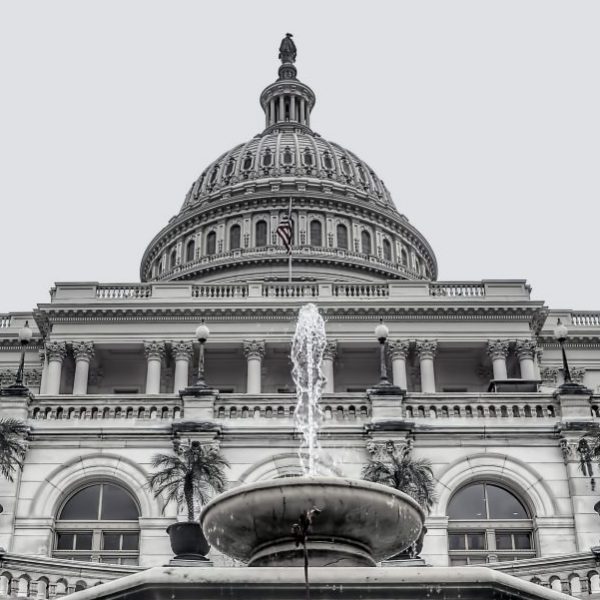National Emergencies and the Rise of Presidential Unilateralism
Benjamin Ginsberg—
President Trump’s declaration of a national emergency to help provide funding for a border wall has touched off a furious controversy with many commentators pointing to what they see as another abuse of power by Trump. Unfortunately, though, President Trump is merely following the well-worn path of unilateral action by presidents who felt impatient with democratic processes. Presidential unilateralism has become the norm rather than the exception in the U.S.
The concept of presidential emergency powers derives from the so-called inherent powers of the presidency. A number of presidents have claimed, and most have believed that the presidency possessed inherent powers both in military affairs and in dealing with domestic emergencies–powers that were not necessarily spelled out in the Constitution or sanctioned by law. Justifying his 1803 decision to purchase Louisiana from France without asking Congress, President Thomas Jefferson wrote, “a strict observance of the written law is doubtless one of the high duties of a good citizen, but it is not the highest.” In 1861, Abraham Lincoln suspended the writ of habeas corpus ordering martial law in a number of areas. In the case of Ex parte Merryman, Chief Justice Roger Taney, sitting as a federal circuit court judge ruled that only Congress, not the president, could suspend habeas corpus.President Lincoln ignored the ruling and ordered the army to maintain martial law.
During the Korean War, President Harry S. Truman relied upon a claim of inherent powers to seize the nation’s steel mills lest military production be interrupted by a threatened strike. Truman asserted that his seizure of the steel mills was based upon the inherent power of the executive and required no statutory basis for his action. The president took the position that neither Congress nor the judiciary could contravene the president’s inherent power to deal with an emergency. The Supreme Court rejected Truman’s seizure of the mills, but did not deny his claim that the president possessed inherent powers to deal with emergencies.
No president acted so frequently on the basis of inherent powers as President George W. Bush who claimed that the inherent powers of the presidency gave him the authority to create military commissions, to designate U.S. citizens as enemy combatants, to engage in extraordinary renditions,” of captured suspects who would be moved to unknown facilities in unnamed countries for interrogation, and to authorize the National Security Agency (NSA) to monitor phone conversations between the U.S. and other nations.When challenged, some but not all of these actions were overturned by the courts. President Barack Obama, continued to rely on the concept of inherent power in ordering drone strikes against suspected terrorists and ordering American air strikes in Libya. Testifying before Congress in 2014, Attorney General Eric Holder defended the president’s unilateral actions saying, “And given what the president’s responsibility is in running the executive branch, I think there is an inherent power there for him to act in the way that he has.”
In the 1976 National Emergencies Act, Congress attempted to place some limits on presidential emergency powers. Under the Act, which was built upon prior enactments, the president is authorized to declare a national emergency in the event of major threats to America’s national security or economy. During a state of emergency, constitutional rights, including the right of habeas corpus, may be suspended.
What constitutes an emergency? The U.S. Supreme Court, in the 1981 case of Dames & Moore v Regan, stemming from President Carter’s handling of the Iranian hostage crisis, construed the president’s emergency powers broadly. In essence, an emergency exists when the president says so.
An emergency declaration, however, does not remain in force indefinitely. Currently, such a declaration remains in force for only six months unless it is renewed by the president. Several declarations have been renewed regularly for quite some time, President Carter’s 1976 declaration of an emergency during the Iranian hostage crisis has been renewed every year, as has been President Bush’s 2001 emergency declaration following the 9-11 terror attacks. These declarations have provided a basis for various trade embargoes, asset freezes, and restrictions on money transfers ordered by successive presidents.
Congress had attached a legislative veto provision to the 1976 Act to ensure congressional ability to control presidential actions under the Act. The legislative veto is a procedure allowing Congress to overturn a president’s specific use of a power that has been granted by Congress. In the 1983 case of INS v. Chadha, though, the Court invalidated legislative veto provisions. The result was to leave the president under less congressional control than Congress had hoped. Congress can still end a presidentially-declared emergency by a congressional joint resolution. Of course, such a resolution is subject to presidential veto. In the case of the border wall, even if Congress voted to end the state of emergency, President Trump would certainly use his veto pen to undo Congress’s action.
Declaring an emergency and building a wall are, of course, two different matters. Pursuant to his declaration of an emergency, President Trump has issued executive orders shifting funds from the Treasury Department’s drug forfeiture program and the Defense Department’s drug interdiction and military construction budgets. Each of these orders is potentially subject to court challenges. Property owners whose lands are affected by wall construction might attack the government’s use of eminent domain. And, last but not least, wall building might be challenged on environmental grounds. For example, the National Butterfly Center has recently filed suit asserting that building a wall would destroy protected butterfly habitats. Presumably some lower federal court could use one or other of these claims to delay the president’s actions, though given the precedents of the past several years, Trump could be expected to sooner or later prevail in the Supreme Court.
All this being said, President Trump has the power to declare an emergency and is likely to prevail in a struggle with Congress. In the end, even the butterflies are unlikely to stop the onward march of presidential unilateralism.
Benjamin Ginsberg is the David Bernstein Professor of Political Science at Johns Hopkins University and chair of the Hopkins Center for Advanced Governmental Studies. He author of Presidential Government, among others.
Further Reading:



























